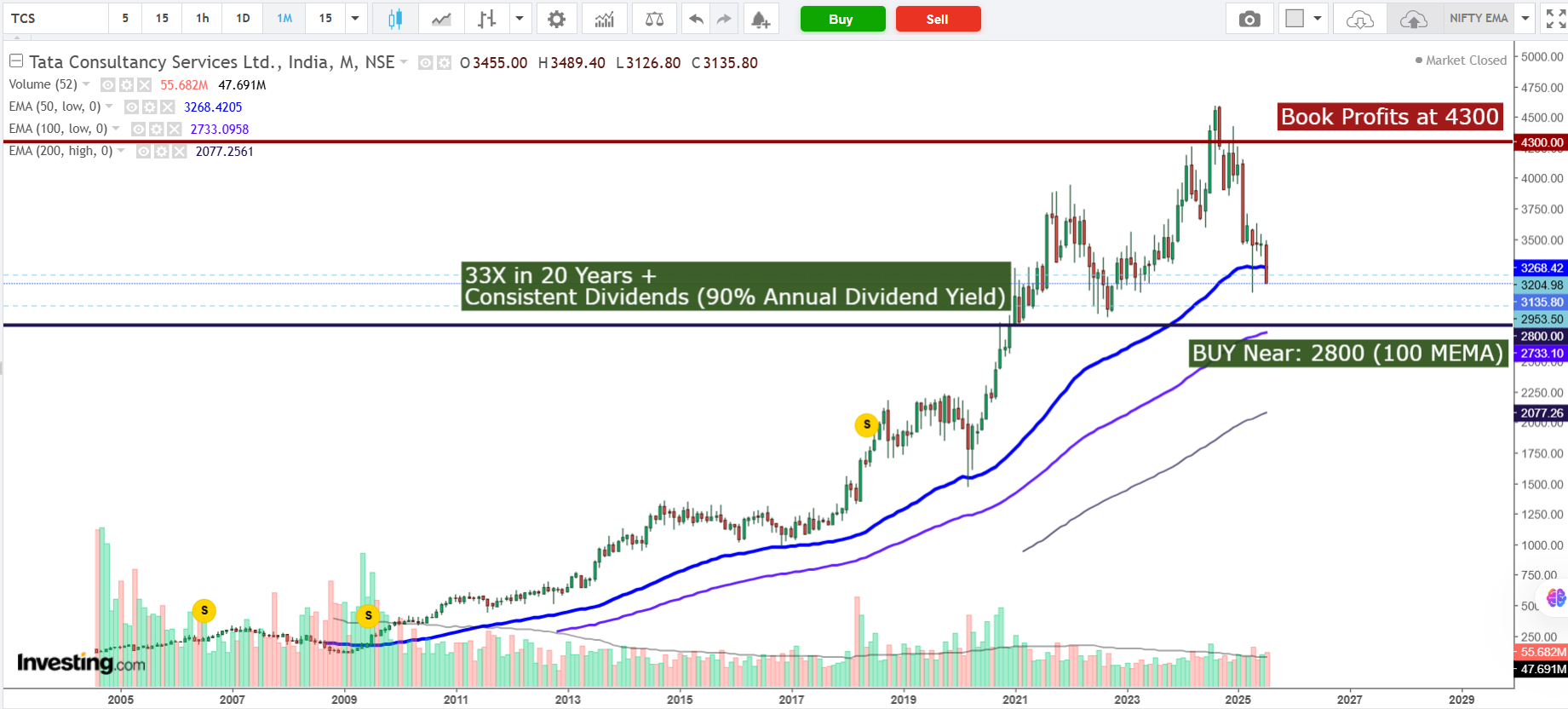
📘 TCS – Long-Term Wealth Builder in India's IT Powerhouse
Updated on: 28/07/25
Profit From It's "Sustained Value & Wealth Model" For TCS:
https://docs.google.com/spreadsheets/d/e/2PACX-1vRSzhfaAjiF1k83LOEAtU_n9uY8EWbuQMNw2tOH_AjV6bK_bJkdAYpQIcFtupm0Yw/pubhtml?gid=352024333&single=true
🏢 About the Company
Tata Consultancy Services (TCS) is a global leader in IT services, consulting, and business solutions. As part of the Tata Group, TCS has earned a reputation for delivering innovation-led growth through technology and digital transformation.
🌍 Industry & Growth Outlook
The global IT services industry is poised for multi-decade growth driven by:
Cloud computing ☁️
AI & Machine Learning 🤖
Cybersecurity 🔒
Digital transformation 💻
India contributes over $245B in IT exports, and TCS stands tall among top players. Long-term digital adoption across BFSI, healthcare, retail, and manufacturing drives a ~12% CAGR outlook for Indian IT over the next decade.
📈 Historical Financial Performance
🔹 Revenue & Net Profit Growth (FY2005–FY2025)
TCS has shown strong compounding over 20 years:
🖼️
📉 Net Profit Margin Trend
TCS has maintained strong profitability over the decades:
🖼️
Average NPM (20Y): ~21%
FY2025 NPM: 19.1% (stable YoY)
Peak Margin: 25.2% in FY2007
📊 Historical Valuation Range (PE & PBV)
Historical PE Band: 15x–39x
Historical PBV Band: 5x–25x
➡️ Current CMP: ₹3,086
➡️ Fair Valuation Zone: PE 26–32x | PBV 13–17x
🧮 FY26 Estimates Based on Current Trends
🧾 Q1 FY26 Insights
Financials:
Revenue: ₹63,437 Cr (+1.3% YoY)
Net Profit: ₹12,819 Cr (+5.9% YoY)
Margin: 20.2% (vs 19.3% YoY)
EPS: ₹35.27 (+6.0%)
Segmental Performance:
Regional Revenue (YoY Constant Currency Growth):
📌 Key Note: Communication & Indian market dragged growth, while BFSI & MEA supported resilience.
💼 Major Cost Drivers (Q1 FY26)
📊 Valuation Outlook (FY26 & Long-Term)
Valuation Summary:
PEG Ratio ~1.44 (fair)
EPS Forward Valuation at 21x–28x is reasonable for a 12% compounder
Dividend yield adds 1.5–2% stability
📌 Portfolio Allocation (Model)
🎯 Ideal for large-cap core portfolio with low volatility and consistent compounding.
📉 Risk & Reward Analysis
Risks:
Slowdown in BFSI or U.S. IT spending
Rising wage inflation or attrition
Currency volatility
Rewards:
Consistent earnings visibility
High dividend payout
Technological leadership in AI & cloud
Strong brand & global presence
🏁 Conclusion: Long-Term Compounding Engine
TCS continues to deliver steady, predictable, and compounding growth. Its strong fundamentals, high RoCE, improving margin profile, and attractive valuations make it a core holding for long-term investors seeking quality in India's IT sector.
📜 Disclosure
This report is intended for educational and informational purposes only. It is not a stock recommendation. Investors should conduct their own due diligence or consult a qualified advisor before making investment decisions.
